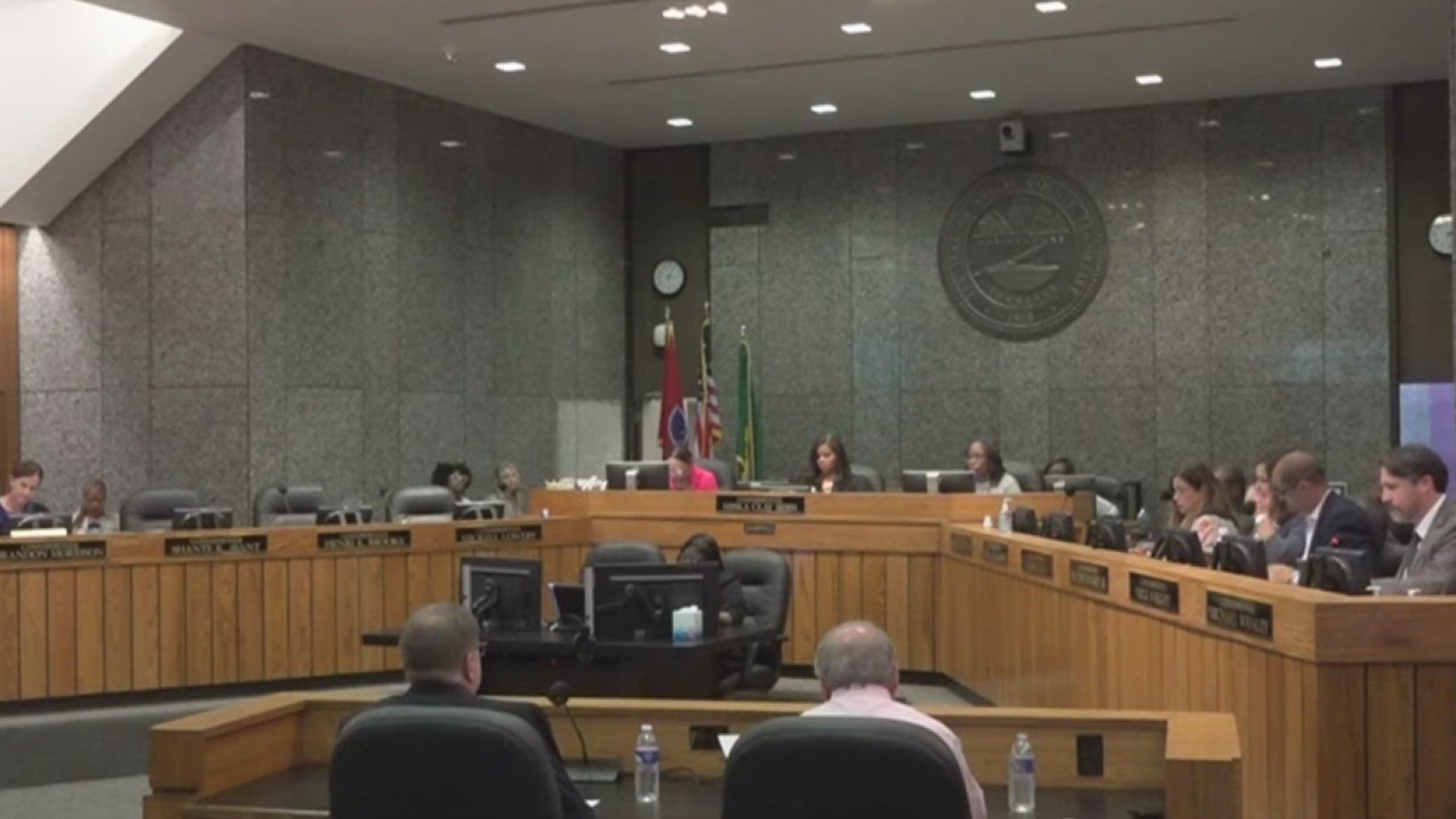MEMPHIS, Tenn. — The Shelby County Commission held a special meeting Monday to discuss the bail setting process and arrest data with a general sessions criminal court judge and judicial commissioner, including the widely held belief that there is a “revolving door” of repeat offenders coming in and out of the Shelby County court system.
“Do you believe there is a revolving door at 201 Poplar?” District 3 Shelby County Commissioner Mick Wright asked during the session.
“The data does not show it,” said Lead Judicial Commissioner John Marshall.
Marshall and General Sessions Criminal Court Judge Bill Anderson discussed a nearly year-long study of 17,000 cases from 2022 to 2023.
“I think that's the public's perception that people are getting out, going right back to doing what they were doing, (committing) the same type of crime, and I don't think it's that simple,” Marshall said.
Marshall said in the six months before the opening of the Bail Hearing Courtroom, part of the new bail process to make the system more fair, the re-arrest rate was 11 percent. In the six months after, it was seven percent.
“The type of re-offenders tended to be more domestic violence or shoplifting, minor thefts, things like that,” Marshall said. “I did not see a pattern of someone committing a violent crime like a carjacking, bonding out and then committing another carjacking.”
But Wright said they need to take a deeper dive in the data.
“I think the public knows what it sees,” he said. “I think we have a problem with crime. We have a problem with repeat offenders, and there’s no denying that.”
Memphis resident Leslie Taylor agreed.
“Are we comparing apples to apples in the data?” Taylor asked. “Are the reasons for arrest in the 11 percent, the same as the reasons for arrest in the seven percent? Are there other factors that might be affecting the data?”
The session also featured discussions on all the contributing factors to the city’s bond controversy. Anderson said one of them is the bail bond companies.
“There’s probably 8 to 10 of them in the City of Memphis,” he said. “And they compete, and it’s just like any other competitive business. You go to one and he’ll take 10 percent, go to another, they take nine percent. They’re the ones that run the show. They’re the ones getting people out of jail.”
Taylor said that ultimately this is a good start to the process.
“I’m so pleased that the (county) commission asked for this data, and I think it’s so great that the Judicial Commission provided it," she said. "I think it’s a great first step."
Wright said they are also committed to providing the judicial system with all the resources they need, such as ankle monitors or an increased staff.
The full study showing the findings of the judicial commissioners' annual report can be found here.

